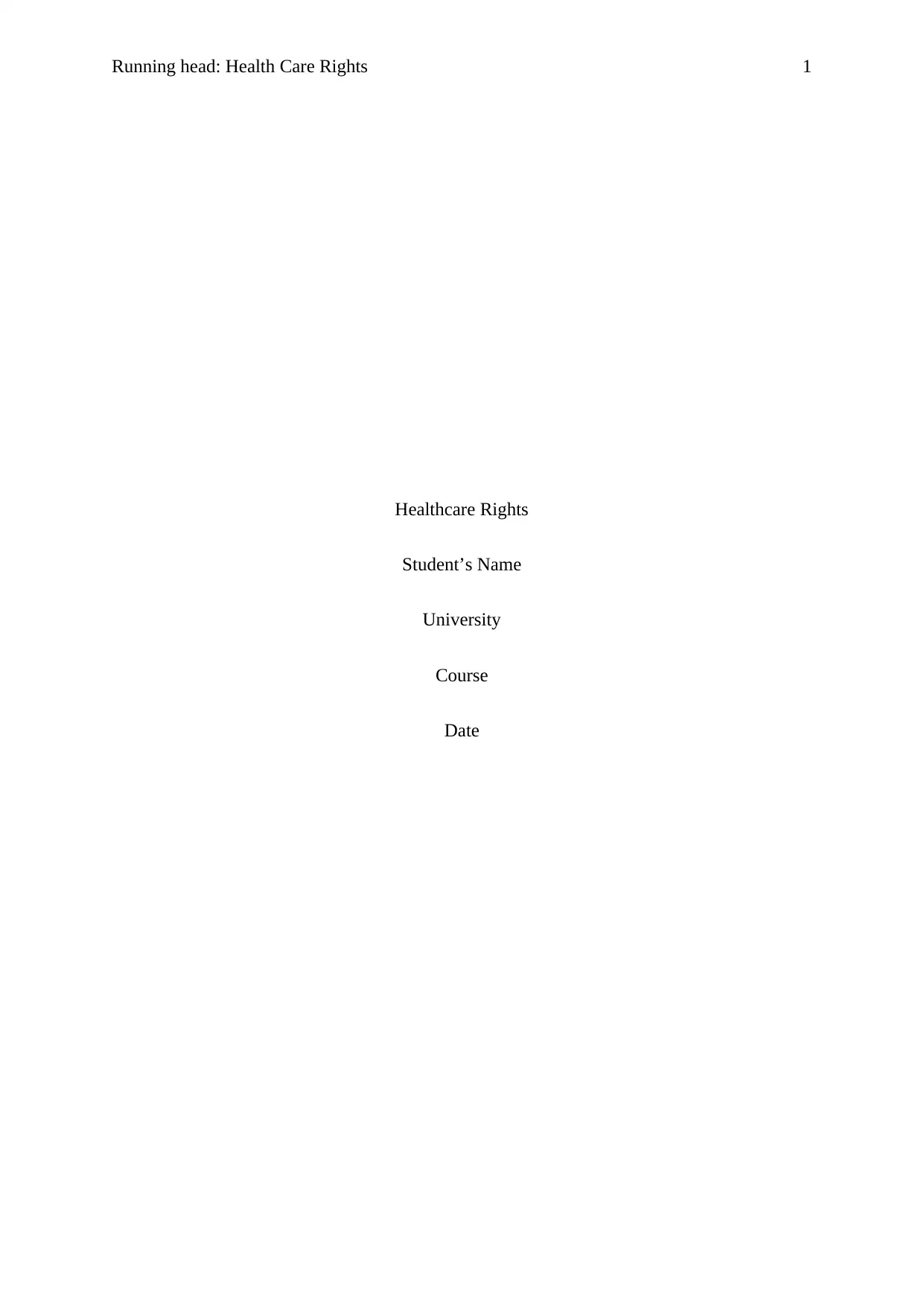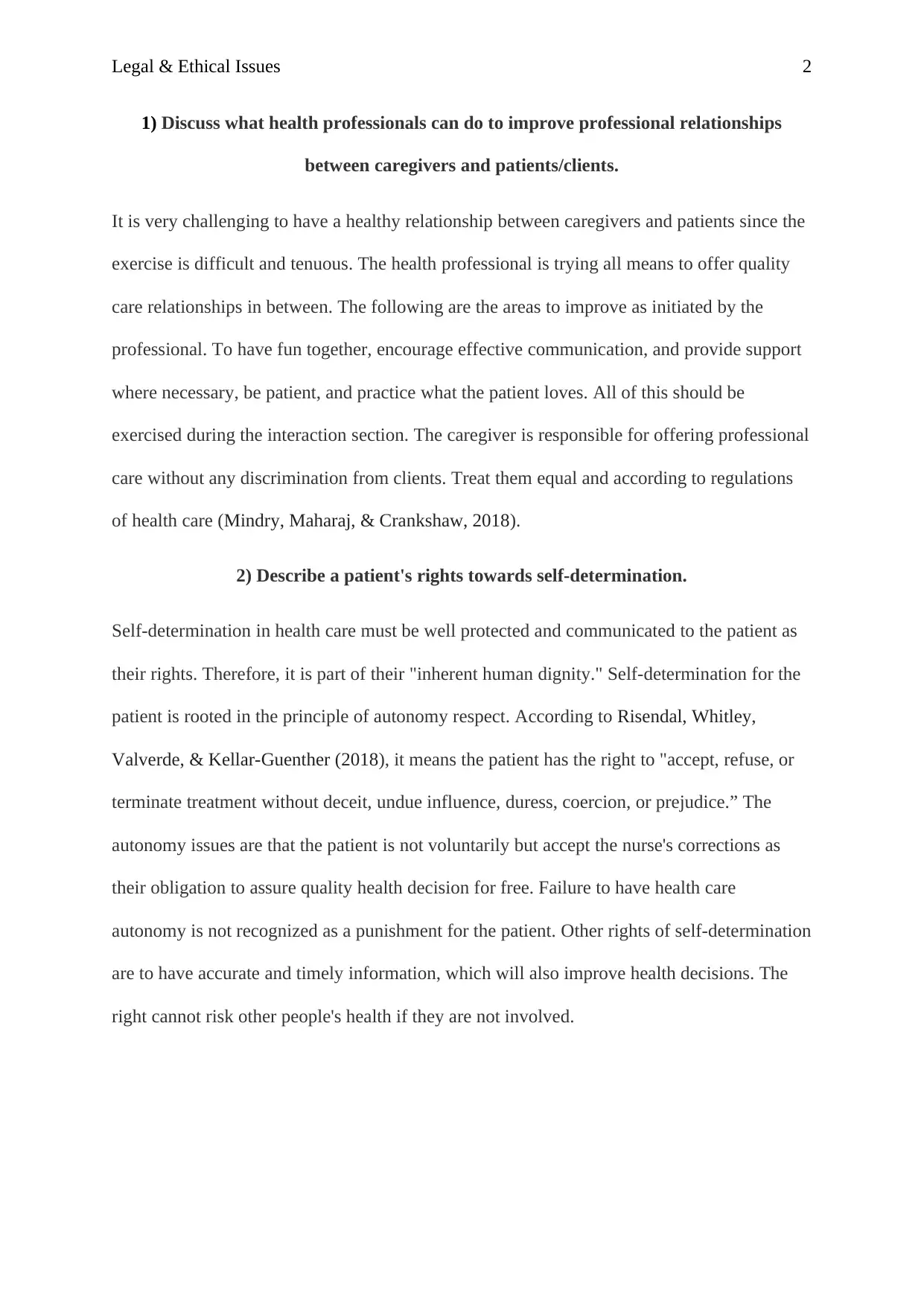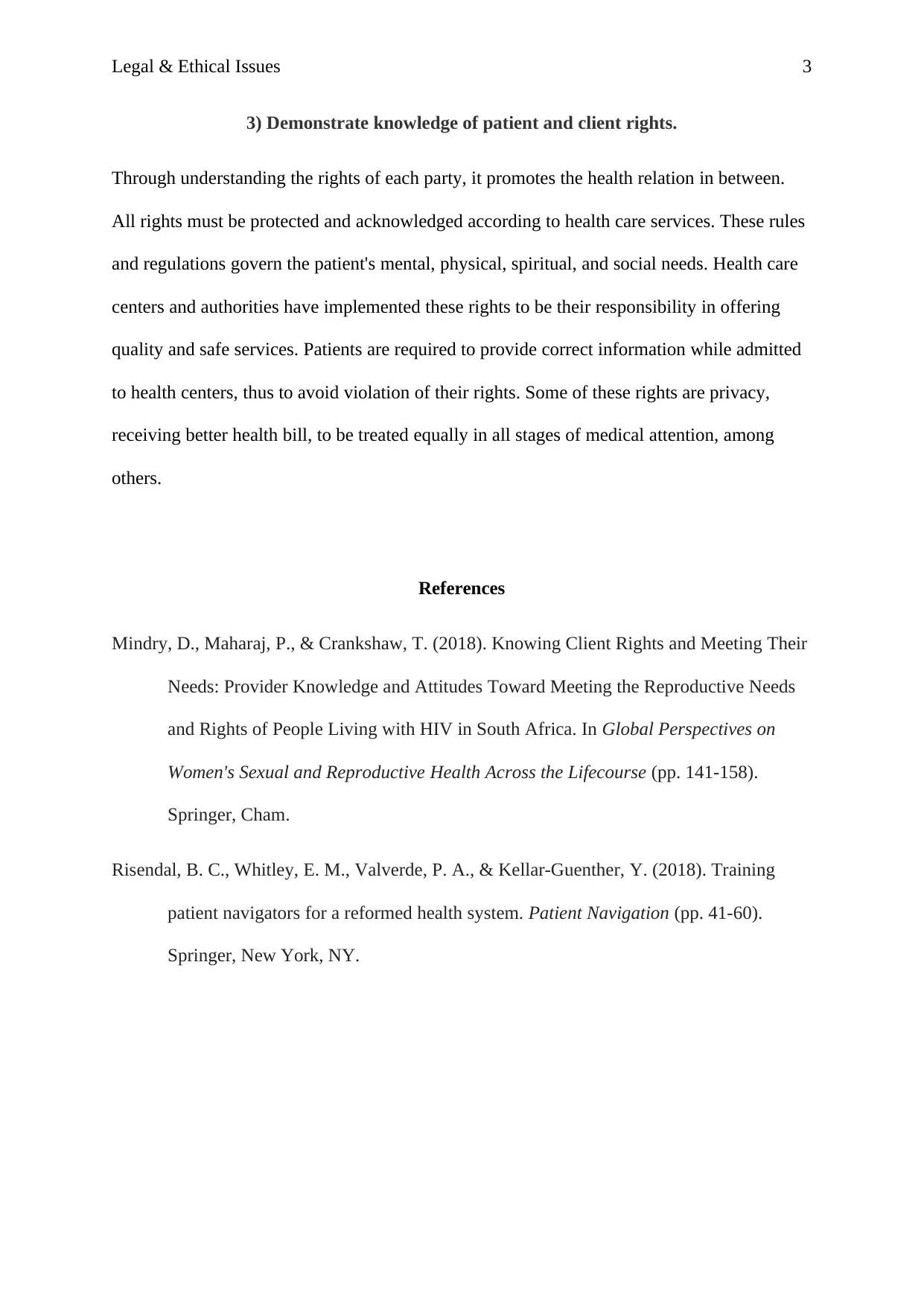Healthcare Rights Assignment: Legal & Ethical Issues 2, University
VerifiedAdded on 2022/10/01
|5
|571
|17
Homework Assignment
AI Summary
This assignment delves into the critical aspects of healthcare rights, exploring the dynamics between caregivers and patients, as well as the patient's right to self-determination. The student discusses strategies for health professionals to improve relationships with patients, emphasizing the importance of effective communication, support, and equitable treatment. The assignment also describes a patient's right to self-determination, highlighting the principles of autonomy and the right to accept or refuse treatment. Furthermore, the student demonstrates knowledge of patient rights, emphasizing the need to protect mental, physical, spiritual, and social needs within healthcare settings. The assignment references relevant research to support the arguments made, underscoring the importance of adhering to healthcare regulations and ensuring patients receive accurate and timely information to make informed decisions. This assignment provides a comprehensive overview of legal and ethical considerations in healthcare, focusing on patient rights and the responsibilities of healthcare providers.
1 out of 5











![[object Object]](/_next/static/media/star-bottom.7253800d.svg)